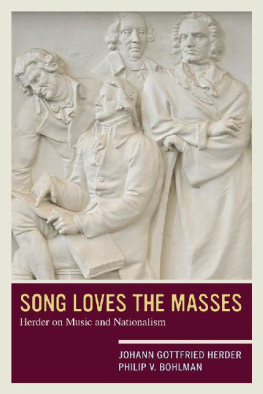

The Crossroad Publishing Company
www.CrossroadPublishing.com
2013 by Scott W. Hahn
All rights reserved. No part of this book may be reproduced, stored in a retrieval system, or transmitted, in any form or by any means, electronic, mechanical, photocopying, recording, or otherwise, without the written permission of The Crossroad Publishing Company.
The stylized crossed letter C logo is a registered trademark of The Crossroad Publishing Company.
Printed in the United States of America in 2013.
ISBN 978-0-8245-0162-4 (alk. paper)
Library of Congress Control Number: 2013941247
Cover design by George Foster
In continuation of our 200-year tradition of independent publishing, The Crossroad Publishing Company proudly offers a variety of books with strong, original voices and diverse perspectives. The viewpoints expressed in our books are not necessarily those of The Crossroad Publishing Company, any of its imprints or of its employees. No claims are made or responsibility assumed for any health or other benefit.
Books published by The Crossroad Publishing Company may be purchased at special quantity discount rates for classes and institutional use. For information, please e-mail .
A Herder & Herder book.
PRAISE FOR POLITICIZING THE BIBLE
Pope John Paul II notably observed that the connection with Greek philosophy helped the Church avoid the danger of falling into the mistakes of either divinizing nature or falling into superstition. The Church moved with two wings, faith and reason. But it has been part of the project of Modernity to offer a constricted notion of reason that pushes religionand Godinto the domain of the irrational or what Hobbes called the fantastical: mere beliefs, untethered, detached from any truths that can reliably be known. In this way, writers on politics sought to remove from political life that vexing problem of God and the way of life that would spring from His laws. The problem of politics could be solved by removing religious conflict, and that conflict would be removed by consigning religion to the domain of things largely beside the point, put safely under political control. In this manner, Scott Hahn and Benjamin Wiker argue, religion has been politicized in a way that degrades both politics and the public understanding of religion.
The central figure, drawing on the currents of the past, and carving out the paths for the future, was Spinoza. And the treatment of Spinoza reflects the deep strengths of this book. With Spinoza, as with all of the other writers dealt with in the book, Hahn and Wiker tell his story, place him in the currents of his time with other writers, and then home in on his teaching with a reading of the work that is not only close but penetrating. Hahn and Wiker have not only given us a notable work in theology, but one of the most compelling histories of political philosophy. I cannot recall any book that achieves that combination as arrestingly as this one. It is, altogether, the most remarkable of works.
Hadley Arkes, Edward N. Ney Professor of Jurisprudence and American Institutions, Amherst College
Hahn and Wiker show how the study of Scripture was transformed by centuries of conflict over the fundamentals of Western civilization. They demonstrate their thesis in minute detail. The Bible clearly emerges as the foundational document of Western civilization and its academy.
Jacob Neusner, research professor of religion and senior fellow of the Institute of Advanced Theology, Bard College
Years ago, then Cardinal Ratzinger called for a thoughtful critique of biblical criticism, and this book is the sort of study I believe he had in mind. As Hahn and Wiker demonstrate, historical criticism did not appear fully formed in the nineteenth century, and its problems are not primarily exegetical, but philosophical. Its intellectual roots reach back to the Nominalism of the late Middle Ages, when subtle philosophical missteps set into motion alternate ways of reading Scripture that were alien not only to the Church and her tradition, but to the classical ways of interpreting texts. Historical criticism has its own history, and its development should be subject to the scrutiny of historical method, as it is in these pages.
Archbishop Augustine DiNoia, secretary of the Congregation for Divine Worship, consultor to the Congregation for the Doctrine of the Faith
In this magisterial work of intellectual history, Hahn and Wiker have tackled the overwhelming bias of modern textual criticism of the Bible by going straight to the Gordian knot of its fractal agenda and cutting through it in a fashion reminiscent of the clarity of the Apostles themselves. As St. Paul (1 Thess. 2:13) put it in his own context, the issue is whether the text is to be received by the Church merely as the word of men or as it is in truth, the word of God. In taking us back to the late Middle Ages for the roots of the secularizing agenda of the discipline, they give us a far more telling analysis of motive and ideological agenda than we could have without these pre-Enlightenment foundations for the long attempt to secularize and thus marginalize the distinctive claims of Revelation. This is essential reading, and not just for biblical scholars.
Prof. David Jeffrey, Baylor University, editor, The King James Bible and the World It Made
Biblical scholarship has long been regarded as something scientific and thus neutral and objective. Recent decades, however, have seen a rising awareness that scholarship is anything but objective as ever more attention is paid to the fact that scholarship is always situated and serves certain ends. In their well-researched, thoughtful, and painstaking study, Hahn and Wiker make a particular and necessary contribution to the history of the Bible in going back not to nineteenth-century Germany or to Martin Luther but rather deep into the Middle Ages and Renaissance, showing that the deliberate Erastian project of subjugating the Bible and with it Christian faith to the power of the State has deeper roots than often assumed. A must-read for those concerned with the place of the Bible and Christian faith in contemporary culture.
Prof. Leroy A. Huizenga, University of Mary, coeditor, Reading the Bible Intertextually
Scott Hahn and Benjamin Wiker have produced a scholarly masterpiece. Politicizing the Bible is the most important work to date on the history of modern biblical criticism. Several features single this book out from the rest of the scholarly literature in the field. First and foremost, it is commonplace for historians of historical criticism to begin in the eighteenth century; this book thus ends where most begin, at the close of the seventeenth century. Hahn and Wiker demonstrate how the roots of modern biblical criticism go back to the late medieval period (the fourteenth century), even prior to the Renaissance and Reformation. In the process, each chapter offers a clear and thorough discussion of the key intellectuals and the role they played in the gradual secularization of Scripture. Refreshingly, Hahn and Wiker place each of the biblical interpreters within their cultural, political, and philosophical context, providing a rare in-depth glimpse into the wider world that gave shape to their intellectual work.
One of the great contributions of Politicizing the Bible is how it shows the inextricable link between these philosophical, political, and theological cross currents, and the scholarly shape and direction taken by each exegete in their critical readings of scripture. Hahn and Wiker examine a host of figures over the first 400 years of the rise and development of biblical criticism. Their names are well known to historians of early modern thought, but rarely enter into discussions of the history of biblical interpretation: Marsilius of Padua, William of Ockham, Wycliffe, Machiavelli, Luther, Henry VIII, Descartes, Hobbes, Spinoza, Locke, John Toland, and others. These key figures and developmental stages are often missed or neglected by scholars in the field. Indeed, Hahn and Wiker bring to light an entire history that is virtually unknown to biblical scholars. Another major component in this history is the influence of Islamic Averroism and how it provided a philosophical framework that powered the early intellectual engines of biblical criticism. By showing how these early critical readings of Scripture reflected and reinforced the secularization of modern thought, this work will also have far-reaching implications for how the Bible is read in universities and seminaries, and how it is preached in pulpits and parishes.
Next page
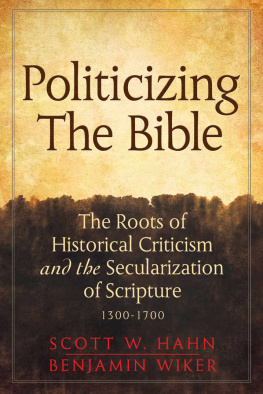
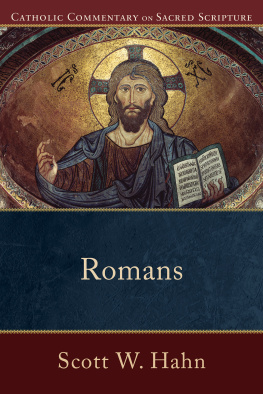
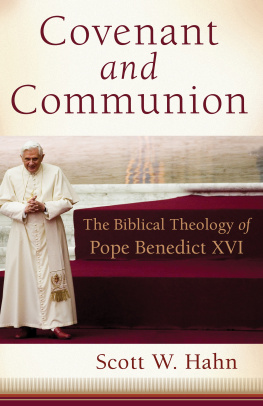

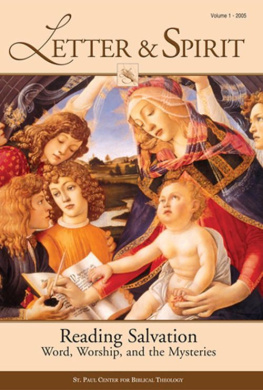
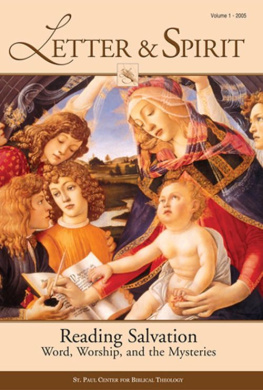
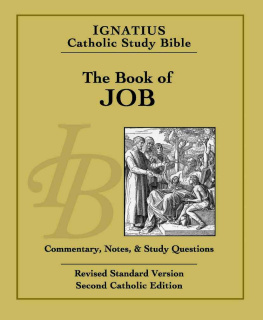

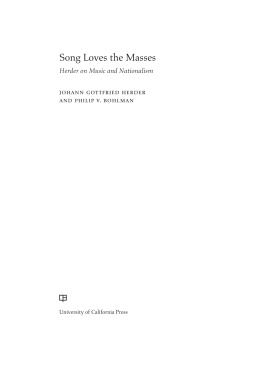
![Scott Hahn [Inconnu(e)] - Scripture Matters: Essays on Reading the Bible From the Heart of the Church](/uploads/posts/book/134760/thumbs/scott-hahn-inconnu-e-scripture-matters-essays.jpg)
![Scott Hahn [Inconnu(e)] - A Pocket Guide to the Bible](/uploads/posts/book/134750/thumbs/scott-hahn-inconnu-e-a-pocket-guide-to-the.jpg)
